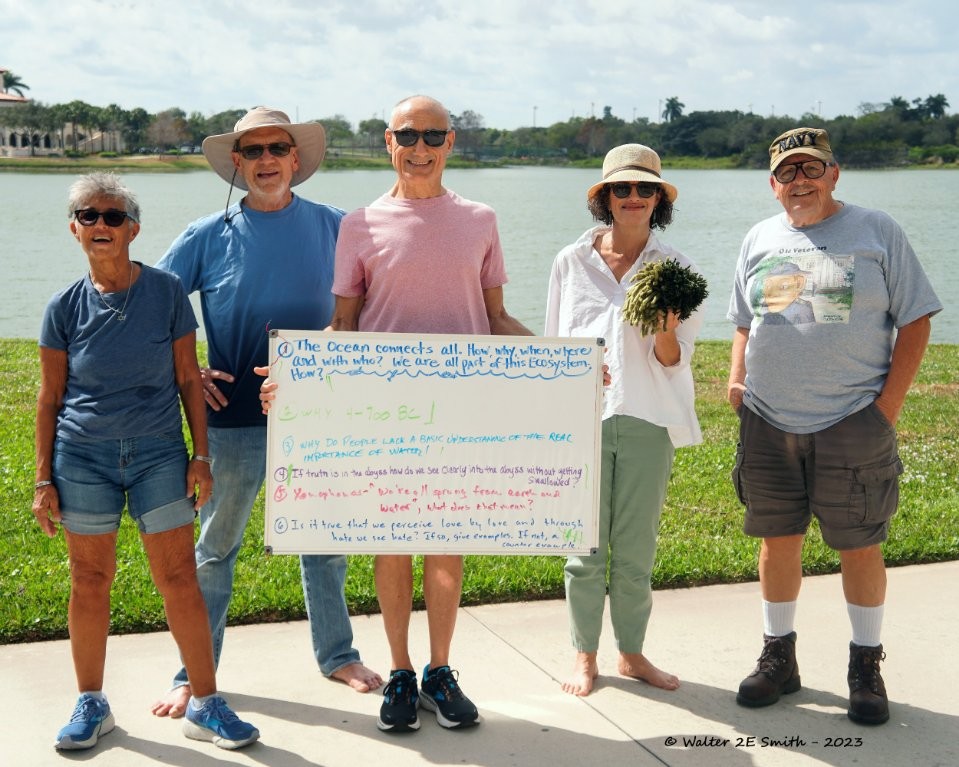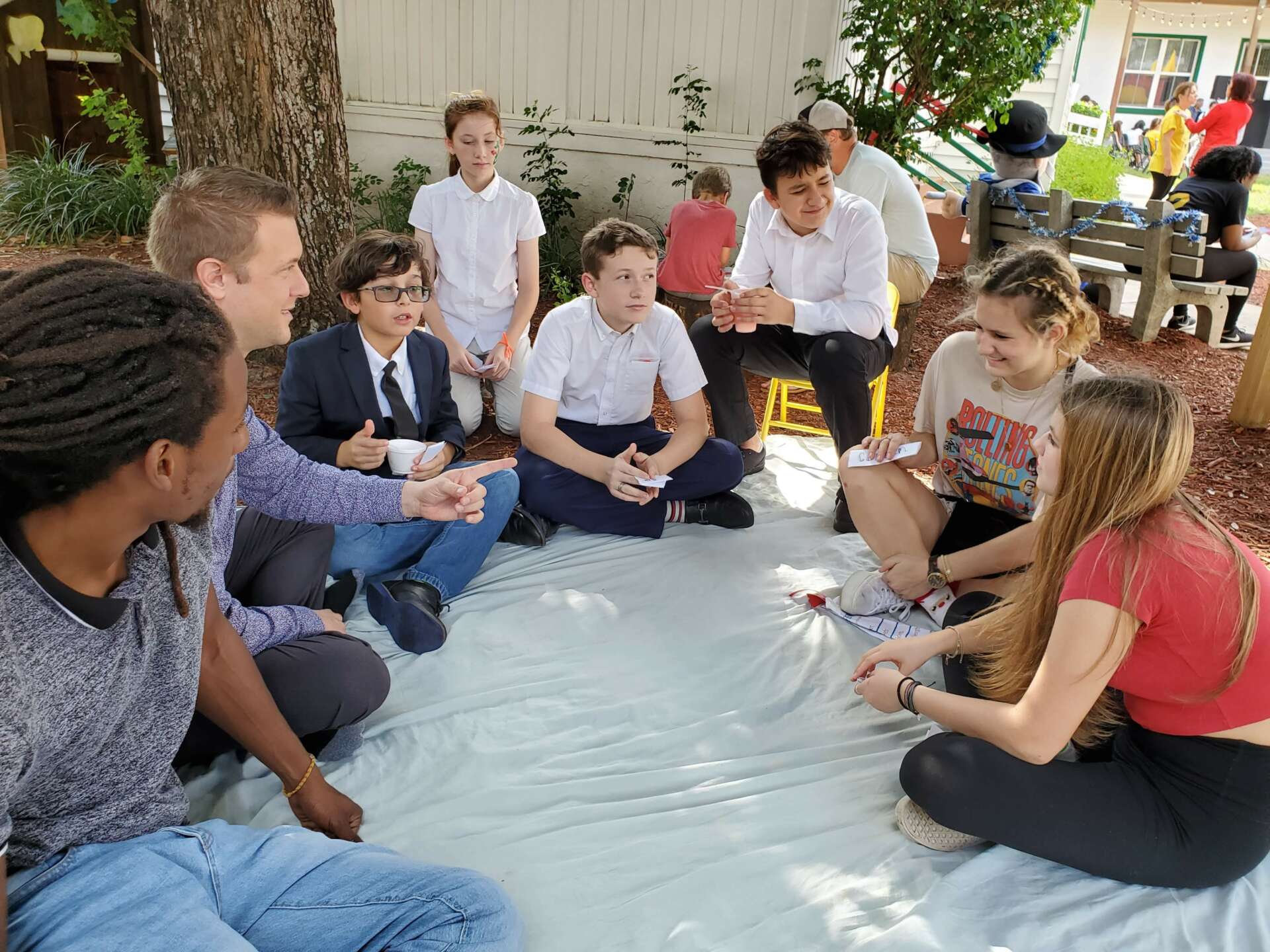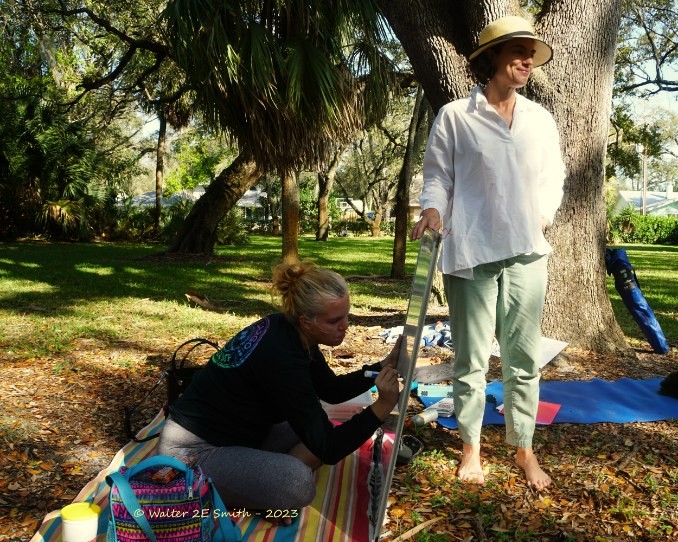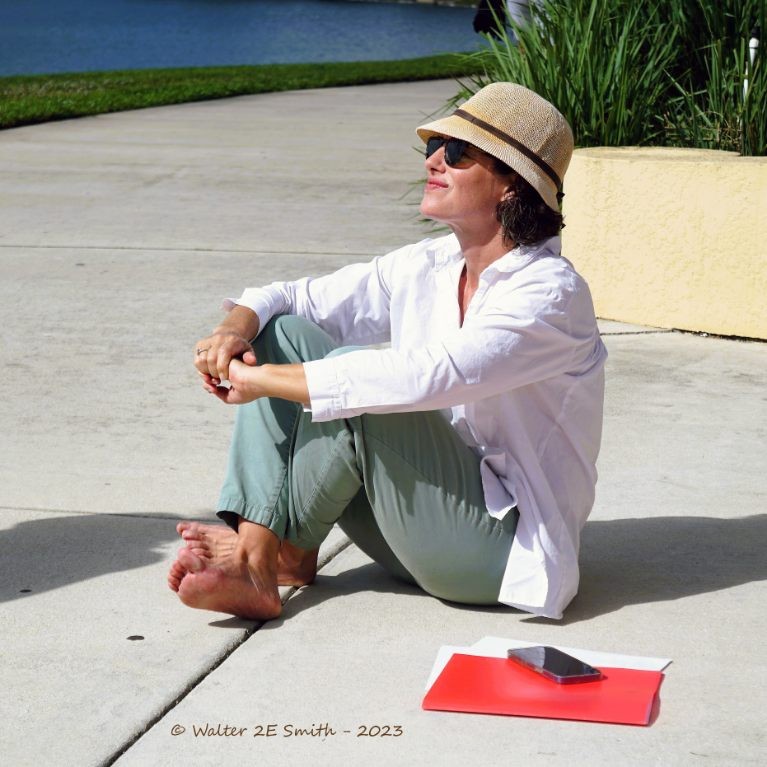We’re excited to introduce you to the always interesting and insightful Sophia Stone. We hope you’ll enjoy our conversation with Sophia below.
Hi Sophia, thanks for joining us today. If you had a defining moment that you feel really changed the trajectory of your career, we’d love to hear the story and details.
I was at the APA (American Philosophical Association) and before I presented my paper, I walked in on a panel session led by Dr. Thomas Jackson (Dr. J as everyone calls him) talking about and modeling a method for teaching philosophy to children. I remember feeling like I was in a room among friends. I heard stories about the cultivation of wonder and a mutual search for answers to questions created from young minds and this lit inside of me a desire to learn more about this magical way of talking and being with one another. I realized there that my dream to bring philosophy to the edges of society, to communities transitioning from tragedy or hardship or crisis, could be possible with this method of teaching. That year, I founded Wisdom’s Edge Foundation, Inc. and started my first philosophical outreach with Women’s Services at the Lord’s Place. Four years later, we’ve expanded our reach to on the ground and online philosophy circles and philosophy events. I finally took the training this summer in Hawai’i and saw mind blowing results in public schools that adopted this magical method of participant-led discussions. I’ve brought this method home here to South Florida and use it in all of the classes that I teach and use it in the circles I host for Wisdom’s Edge. I’m eager to share my training and hopefully get community teachers to adopt this style of discussion.


Awesome – so before we get into the rest of our questions, can you briefly introduce yourself to our readers.
I was born and raised in California, studied philosophy at U.C. Berkeley, the Dominican School of Philosophy & Theology and earned my PhD in philosophy at Purdue University. I was interested in philosophy in high school and took a class in logic at U.C. Santa Cruz in my senior year through an honors program. I liked the class because the professor, Dr. Rick Otte seemed very clever and so were many students in the class, quickly calculating the problem or solving the deduction. I was in over my head but I thought that logic and thinking like this together with people was fun. I was not able to attend the university directly from high school and for ten years I worked and took classes at the community college until I was able to transfer to an excellent school, U.C. Berkeley. At Cal I would organize philosophy cafés where the philosophy students would meet to discuss one of the texts or the papers assigned. I stayed in Berkeley to complete a three series course taught by Professor Hans Sluga on the History of Analytic Philosophy and completed my master’s in philosophy at D.S.P.T., a seminary that offers philosophy degrees and programs to its lay and religious communities. It was there that I started the Owl of Minerva, where we gather one evening a month to present a paper and enjoy wine and food together. There was a homeless man, Steve, who would always join and talk with us. He was very smart and would audit courses at UC Berkeley and find some place to sleep at a nearby park or garden. He was the most lucid when he was talking with us about philosophy, enjoying a glass of wine, feeling welcomed in our company. After receiving my master’s, I started teaching, both at the community college and in public and private universities as an adjunct. I noticed how much philosophy helps people think and that when one thinks better (presumably) one does better. So I’ve had this idea of philosophy being a social and public good for a while. I imagine Wisdom’s Edge to help the very old, the ones who don’t work but can think and are just waiting for it all to end, I want to give them something beautiful and good to think about. I imagine Wisdom’s Edge to help the young and the curious, the ones who are too wiggly for school and just want to play – I imagine Wisdom’s Edge finding that spark of wonder in a child’s eyes and showing them how to keep that wonder alive through gently Socratic questioning. I imagine Wisdom’s Edge helping people transition from hardship or tragedy. I imagine Wisdom’s Edge helping people live more fulfilling lives through the aid of philosophy, creativity and community.


Have any books or other resources had a big impact on you?
Socrates in Plato’s Apology told his jury who was soon to condemn him to death that “the unexamined life is not worth living,” and that the worst form of ignorance was thinking that one knows when one doesn’t know. The worst form of ignorance is being ignorant of one’s own ignorance. Socrates is my hero and I’ve modeled the purpose of our mission after his teachings. In my introductory classes on Western Philosophy, Plato’s Apology is always included. The second book that has really impacted my life was Plato’s Republic, especially book VII where every first year student in philosophy is introduced to Plato’s allegory of the cave. Learning about the cave and how we are all prisoners because of society and family ties impacted my life at a much earlier age and probably has made a longer lasting impact than reading about the trial of Socrates. Still, both texts are worth reading more than once. We use them in our discussions with the communities we serve. Many in transition from tragedy or hardship will connect to the idea of examining ignorance – in themselves or others. This aspect change of thinking about one’s problems or one’s situation (‘what don’t I know?’) can help us move in the direction we need to go (‘how do I look for what I need to know?’). This is part of living the examined life – to question and learn from our questioning.
Can you share a story from your journey that illustrates your resilience?
Bringing p4cHawai’i into the classroom was scary because it involved colored yarn, hand movements, special signals, and rights, and I had to trust the students to carry the conversation. It was a big risk and it worked better at times than others but in the end, it was well worth the risk.
The first risk was that I was teaching college students but the method is called ‘p4c’ – philosophy for children. I’ve learned to just call what we are doing ‘plain vanilla inquiry’ – which is part of ‘p4c’ but I have found that adults really don’t like the ‘children’ designation, even if it just means if you have a sense of wonder, you are a child, as children are full of wonder. The students did enjoy the element of play that occurs when one is throwing the community ball (the yarn ball we make together as a group), students taking turns inviting one another to speak by name and it seems like they enjoy the structure, too. Students are asked why they asked the question they did, and how did it form from our shared stimulus and they are also asked to evaluate their own and the group’s engagement in the discussion. I used to feel nervous and awkward when introducing the ball of yarn to the students, now I just approach them with excitement and anticipation, as if what we are doing is uniquely special and important.
The second risk was letting go of control and following the students, wherever they were at. One time, one of the students asked the question, “Do you like Aristotle?” and cajoled the others to vote for the question – and they did! They must have seen my eyes roll back in my head but I nodded and accepted the question. Okay. “Whose question is this?” I asked. A student raised his hand. I invited him to share why he asked this question, why he was curious about the answer, and how it made him wonder. His candid response surprised me. He said that he didn’t like Aristotle because he didn’t understand him. When the other students shared, one had said she had read him in France but the translation was much better than the one I had used. Others admitted not to knowing Aristotle but said that they were interested in learning about him since he has been a major figure in our human history. In fact, every other student came to the defense of Aristotle, saying that they wanted to learn more about him and his life’s work. “All right then,” I thought to myself, “I have to trust the process of the group.”
The third risk is that the circle is only as good as its students. Euclid’s common notion 5 from Book I, that the whole is greater than the part, and later, the whole is the sum of its parts, rings true for participant lead discussions. If you have students walking in and leaving… if you have students who aren’t invested in the process and don’t feel like they have a stake in the discussion – it can be pretty challenging to run the discussion smoothly. But whenever there is a so-called classroom management issue, I can always raise the issue in the circle and have the students address it and problem-solve together. This develops their self-efficacy and agency and also forms a community, as communities are built on trust. In one group, I saw that students’ questions were quite superficial and not very interesting. I didn’t say anything and waited for another student to diagnose the problem. She suggested that they were having trouble forming questions because they hadn’t done the reading. It was more powerful coming from her and she influenced the class to come more prepared than they had been if I had said something. The group self-corrects when I have the patience to wait for that to happen. If I sense there is something lackluster about our conversations, I ask them about it and we improve it and make it better.
If I’m seeing these results at the college level, taking just a few risks, imagine the results at the K-12 levels. If teachers would only take the risk to change their classrooms to participate in a daily practice of participant-led discussions in the p4cHawai’i style, students could feel more confident in their own ideas and in sharing them with others. Imagine students as young as five or as old as fifteen exploring their wonder, taking turns, inviting their peers to speak, agreeing or disagreeing, and saying why — and then having them evaluate their togetherness in their inquiry – it would be nothing but transformative.
Contact Info:
- Website: https://www.wisdoms-edgefoundation.org/
- Instagram: wisdomsedgefoundation
- Facebook: https://www.facebook.com/wisdomsedgefoundation
- Linkedin: linkedin.com/in/sophia-stone-0a072b66
Image Credits
Sophia Stone or Walter Smith


